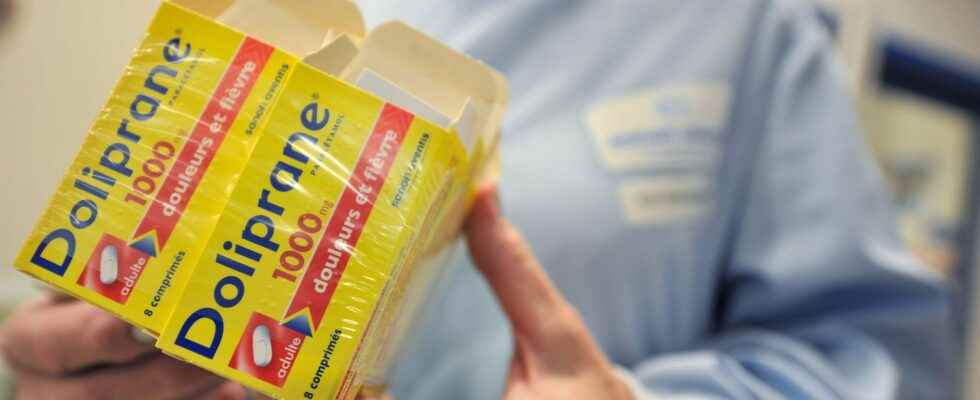It was to be a matter of “weeks”, “months”, at most. A few weeks ago, the Minister of Health explained on RTL that the stock-outs of medicines observed in many pharmacies would not last. Lost. A month later, access to paracetamol remains “complex”, especially in its formula for children, recognized François Braun on Wednesday. On the side of amoxicillin, “the overall situation is regularizing”, but tensions persist.
Germany, Italy, United Kingdom… The chief doctor of the French government is not the only one to be under pressure, in recent weeks, about the empty shelves of certain pharmacies. Almost everywhere in Europe, stock-outs are accelerating as winter epidemics accumulate. So much so that the difficulties of other powers are regularly mentioned by the French government in an attempt to appease the irritation of health professionals and certain patients.
“This shortage is global”, reminded the Senate the Minister of Industry, Roland Lescure, at the beginning of the month. According to him, France was even one of the quickest countries to react, waving the ban taken in France to export drugs. The authorities have also agreed to temporarily place orders through wholesaler-distributors, to better distribute the batches on the territory.
Berlin is still trying to establish the way forward. This Thursday, German Health Minister Karl Lauterbach promised an emergency plan to “overcome the supply bottlenecks” observed in the country. But it shouldn’t arrive until next week. Germany could then exceptionally allow health insurers to buy from suppliers that are more expensive than the floor prices, but with faster delivery.
Like in France, formulas for children of analgesics and antibiotics are difficult to obtain across the Rhine. Antipyretics, antihypertensives, anticholesterolemics… In total, 350 molecules are in tension, lists the German Federal Institute of Medicines. A smaller number, however, than in France, where 600 products were already affected in the first quarter of 2022, according to the ANSM count.
For the German government, as for its French and Italian partners – where consumers have also reported difficulties when it comes to finding certain medicines, underlines the daily La Stampa -, the crisis would be explained by a demand shock rather than by production problems. After several winters where only Covid-19 was circulating, numerous seasonal epidemics of flu and infections have been added to the coronavirus in many European nations. This caused a sharp and sudden increase in needs, after a period of very reduced activity.
Thus, European orders are clogged with manufacturers who, on the scale of the planet and of all medicines, are concentrated at 70% in India and China. “We encounter the same difficulties as with microprocessors”, explained to euro news Ilaria Passarani, Secretary General of the Pharmacists Association of the European Union (PGEU), in early December. A context that exacerbates recurring supply problems in Europe for the past ten years.
Those who have left the European Union to be free to enter into partnerships as they see fit are not doing any better. This Thursday, again, the British Ministry of Health also recognized a shortage of amoxicillin and penicillin. Antibiotics particularly used to treat streptococcal A infections. Cases are increasing in the country, to a lesser extent in France. Since the start of the epidemic season, in England, more than 700 cases have been detected. 19 children died.
Across the Channel, the government is under pressure from patients and healthcare professionals. “We are taking decisive action to resolve these temporary problems,” tried to reassure the British Secretary of State for Health. At the same time, some drugs on the shelves have seen their prices soar. On Wednesday, the British Competition Authority (CMA) announced the launch of an investigation to determine the origin of this inflation, considered abnormal.
